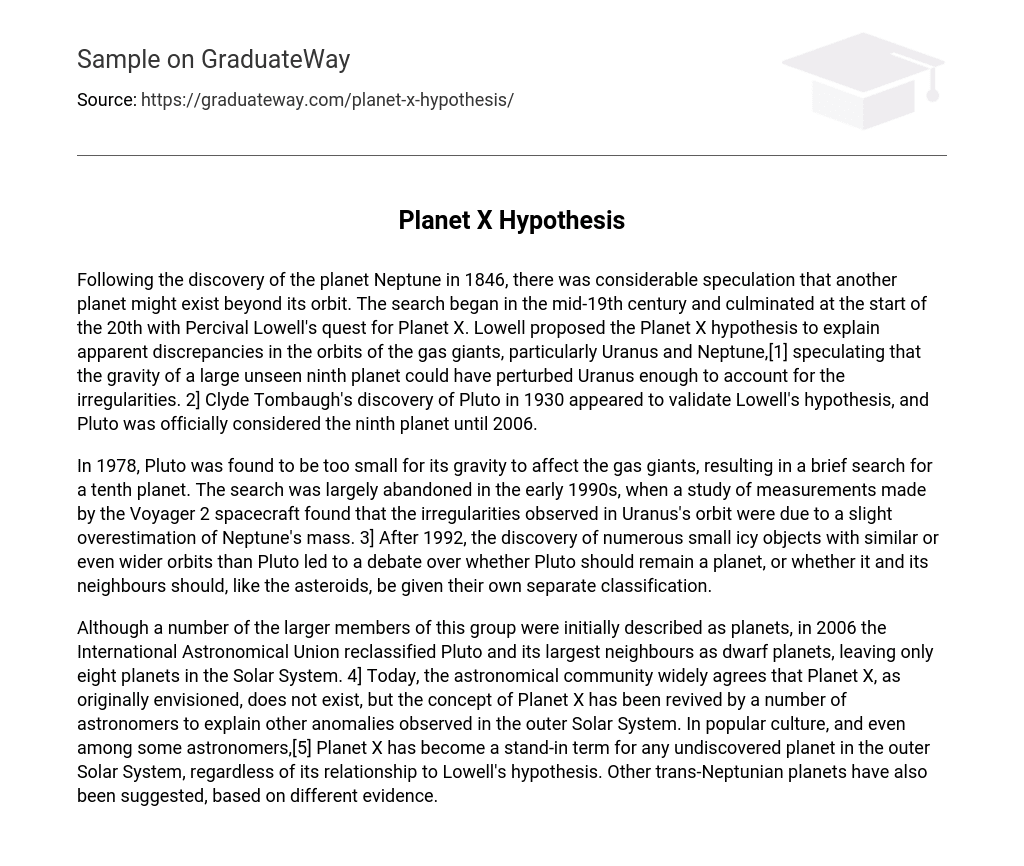Following the discovery of the planet Neptune in 1846, there was considerable speculation that another planet might exist beyond its orbit. The search began in the mid-19th century and culminated at the start of the 20th with Percival Lowell’s quest for Planet X. Lowell proposed the Planet X hypothesis to explain apparent discrepancies in the orbits of the gas giants, particularly Uranus and Neptune,[1] speculating that the gravity of a large unseen ninth planet could have perturbed Uranus enough to account for the irregularities. 2] Clyde Tombaugh’s discovery of Pluto in 1930 appeared to validate Lowell’s hypothesis, and Pluto was officially considered the ninth planet until 2006.
In 1978, Pluto was found to be too small for its gravity to affect the gas giants, resulting in a brief search for a tenth planet. The search was largely abandoned in the early 1990s, when a study of measurements made by the Voyager 2 spacecraft found that the irregularities observed in Uranus’s orbit were due to a slight overestimation of Neptune’s mass. 3] After 1992, the discovery of numerous small icy objects with similar or even wider orbits than Pluto led to a debate over whether Pluto should remain a planet, or whether it and its neighbours should, like the asteroids, be given their own separate classification.
Although a number of the larger members of this group were initially described as planets, in 2006 the International Astronomical Union reclassified Pluto and its largest neighbours as dwarf planets, leaving only eight planets in the Solar System. 4] Today, the astronomical community widely agrees that Planet X, as originally envisioned, does not exist, but the concept of Planet X has been revived by a number of astronomers to explain other anomalies observed in the outer Solar System. In popular culture, and even among some astronomers,[5] Planet X has become a stand-in term for any undiscovered planet in the outer Solar System, regardless of its relationship to Lowell’s hypothesis. Other trans-Neptunian planets have also been suggested, based on different evidence.





